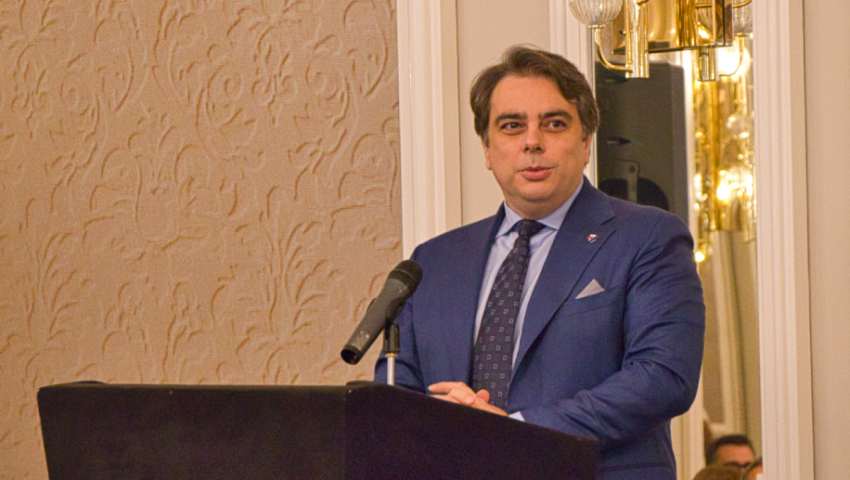The Minister of Finance does not expect the cancellation of Lukoil's derogation to affect the fuel market in our country

The complete drop of the derogation for Russian oil from March 1, 2024 should not affect the Bulgarian market. Finance Minister Asen Vasilev told journalists in Blagoevgrad, quoted by BTA.
The reason for his comment is the agreement between GERB-SDS, "We continue the change - Democratic Bulgaria" (PP-DB) and DPS to cancel the derogation for Russian oil in two steps. The first is the suspension of export quotas from January 1, the second - from March 1 the final cancellation of the derogation, announced the chairperson of the GERB-SDS parliamentary group Desislava Atanasova in a joint statement in parliament on Friday.
According to Vasilev, there is no reason to raise fuel prices in our country at this stage.
Already a month and a half - two months ago, the parliament adopted a law with which the use of Russian oil should be gradually reduced. Banning exports from January 1 concerns Russian oil. If there is non-Russian oil, it can easily be exported, the minister said. According to Vasilev, this will simply accelerate the transition to non-Russian oil.
Vasilev also commented on the position of "Lukoil Neftochem Burgas" AD, sent to the media yesterday, that the cancellation of the new quotas for the export of petroleum products from January 1, 2024, is equivalent to the cancellation of the derogation from December 2023. According to him, these are attempts to instill fear.
The adjustments under Budget 2024 are only in the capital program
The Minister of Finance Asen Vasilev stated that during the meeting with GERB-SDS and DPS on Friday, they agreed to make corrections only in the capital program recorded in the draft budget for next year. Vasilev told journalists in Blagoevgrad that instead of the planned 12 billion BGN, it was agreed that the capital costs would be 10 billion BGN, or 25% more compared to this year.
"Two billion and 400 million BGN, which were not foreseen in the original planning, which we put from the new installment of the gas, against which there were additional investments - capital costs, actually fell out of the general framework of the budget," Vasilev explained.
"When it comes to education funding - what we're hearing is that everyone is extremely happy. You know, 125% of teachers' salaries are kept, money for science and higher education has been significantly increased. In culture, there is also a significant increase in money - there is a 15% increase in standards, separately there is 28.5 million BGN, which are for real activities according to the methodology of the Ministry of Culture", he further explained.
Vasilev added that on Friday he held a meeting with the Association of Libraries, Museums and Community Centers. "They said they want to check what project readiness for activities they have and actually work more actively so that these funds can reach them," the minister added. He recalled that in 2021 they allocated BGN 12 million in this way, but they returned to the budget because the Ministry of Culture failed to organize itself then.
Regarding financing for the municipalities, Asen Vasilev said that he has never divided and will not divide the municipalities into "ours" and "yours". "The criteria have always been the same," Vasilev said.
Already in the government program, we have bet that there will be BGN 1 billion for municipal projects, in the same way that there was a Fund for Municipal Projects in 2022. In this BGN 1 billion, there are specific parameters with which municipalities can apply. What the colleagues from GERB-SDS want is for this list of projects to be adopted with the budget law, and not to work with the municipalities as it was before. This is not a problem at all, in principle it is good for the parliament to vote on the list. The only question is time - will there be enough time for the municipalities to organize themselves before the adoption of the budget, commented Asen Vasilev. He added that a hybrid option could be considered - the municipalities that are ready with projects should go to a vote through the parliament, and the others should be voted on when they are ready.
There are municipalities that are in good financial health, there are also those that have gone bankrupt. There are 8 municipalities that are included in the recovery program of the government, Vassilev added.
